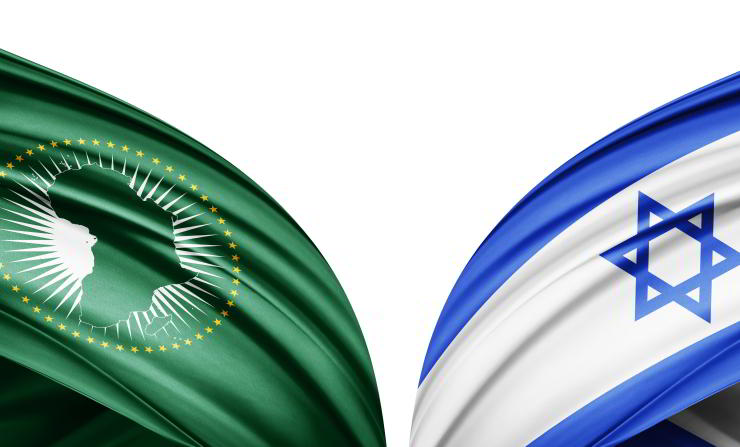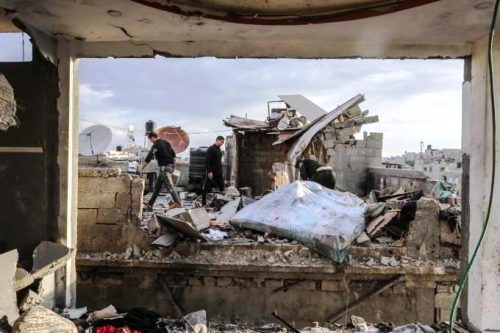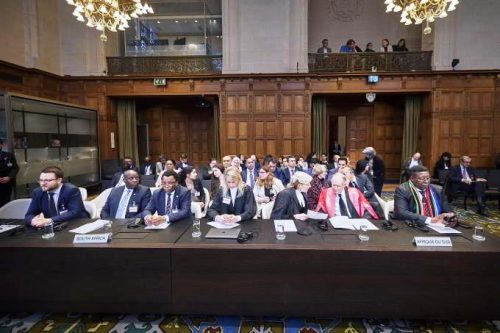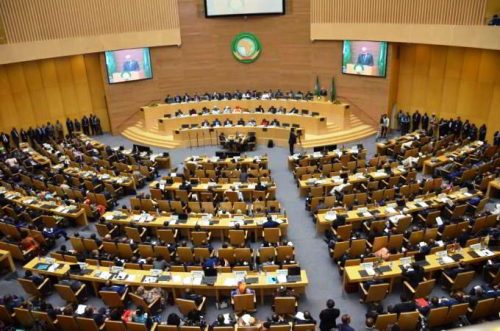Israel – Africa. Relationship at risk.

With the conflict in Gaza, relations between Israel and African countries, particularly Algeria and South Africa, have reached a critical point. Everything depends on whether the conflict spreads to other areas of the Middle East.
In recent decades, relations between Israel and African countries have undergone a continuous evolution, characterised by a complex mix of strategic cooperation and diplomatic tensions. Israel, which has always seen Africa as a region of primary geopolitical importance, has sought to cultivate ties with the continent’s governments, especially in the fields of security, agriculture and technology, including military technology. However, these relations have been put to the test by global geopolitical events and regional conflicts, in particular the 2023 Gaza war, which has sharpened criticism of Tel Aviv by some African countries.
Since the 2000s, Israel has undertaken a new diplomatic strategy with Africa, to rebuild relations that, in previous decades, had been strained by the Arab-Israeli conflict. One of the key points of this strategy has been the strengthening of cooperation in sectors such as security and agriculture. Areas in which Israel has been able to offer its expertise to African countries that have to face terrorist threats and challenges related to food and water security.

Palestinians inspect their destroyed house after an Israeli air strike in the city of Rafah in the southern Gaza Strip. Shutterstock/Anas-Mohammed
In this context, the Israeli agency for international cooperation, Mashav, has played a key role. Through its agricultural training programs, it has helped several nations develop technical skills essential to improving agricultural productivity and natural resource management. This type of assistance has not only improved the economic conditions of local communities but has also helped strengthen diplomatic ties between Israel and many African governments.
Another example of the growing collaboration between Israel and Africa is the work of Israeli NGOs, such as IsraAid, which operate on the continent, providing humanitarian relief in response to natural disasters and humanitarian crises. IsraAid has worked in countries such as South Sudan, Ethiopia and Kenya, implementing social and health development projects. This type of engagement illustrates the importance of humanitarian relations in strengthening ties with Africa.
The accusation of genocide
However, despite this progress, the landscape of relations between Tel Aviv and Africa remains complex and unstable, especially due to tensions related to the Palestinian question. The 2023 Gaza war, which occurred after the Hamas attack, represented a turning point, provoking an increasingly critical reaction from several African countries towards the Israeli response.

Application of the Convention on the Prevention and Punishment of the Crime of Genocide in the Gaza Strip (South Africa v. Israel). Photo ICJ Office
A case in point is that of South Africa, which in November 2023 filed a genocide charge against Israel at the International Court of Justice. Although the charge was formally rejected, the Court recognized that some actions of the Israeli government in Gaza, if prolonged over time, could have fallen into practices comparable to genocide. This initiative has put the spotlight on the difficult relations between Israel and the continent, highlighting how the Palestinian question continues to exert a strong influence on these relations.
South Africa, with its history of fighting against apartheid, has taken a leading position in denouncing Israel, drawing parallels between its own experience and the Palestinian situation. Pretoria has pushed for the African Union (AU) and African countries to stand against Tel Aviv and sever diplomatic relations. These actions for the Pretoria government are not only linked to the war on Gaza but are supported by the idea that Israel acts as a colonial power and by the accusation that Tel Aviv is pursuing apartheid policies in the occupied territories.
The question of observer status in the African Union
Israel’s admission as an observer member to the African Union in 2021 was a major diplomatic victory for Tel Aviv. This status allowed Israel to participate in the organization’s forums and interact directly with representatives of the 55 member countries. However, the granting of this status was immediately met with opposition from some member states, primarily Pretoria and Algiers, historical supporters of the Palestinian cause. The criticism did not stop at the Palestinian issue. Many African leaders have expressed concerns about what they see as an attempt by Israel to influence African politics and use the AU to legitimize its actions in the occupied territories. Pressure from South Africa and other countries led to the suspension of observer status in February this year, although Tel Aviv continues to maintain diplomatic ties with many member states.
Security, technology and agriculture
While international politics and tensions continue to negatively impact relations between Israel and some African countries, other nations see Israel as a strategic partner, especially in the areas of security, intelligence and technological innovation. Israel has established important partnerships with countries such as Chad, Senegal and Tanzania to counter terrorist threats that affect areas
within their countries.

Ordinary Session of the African Union, Addis Ababa, Ethiopia. (Photo: AU Office)
Thanks to its expertise in the field of intelligence, Israel has become a key partner with African countries seeking to strengthen their defence capabilities and protect critical infrastructure. Over the past decade, Israeli military exports to the continent have increased by 306%. In recent years, several African authoritarian regimes have also used Israeli spy software.In addition to security, another area of strong cooperation is agriculture. Israel, a global leader in agricultural innovation, has provided African countries with advanced technologies for water management, arid areas cultivation and the fight against desertification. Collaborative projects in the agricultural field have been launched, for example, with Kenya and Ethiopia.
The geopolitical challenges
In the African geopolitical context, Israel finds itself competing with other global powers that have long established a strong presence on the continent. Countries such as China, Turkey, and Saudi Arabia offer strong economic incentives and investments in infrastructure, resources that Israel cannot match in quantity.
Another destabilizing factor for Israel is the presence of Iran in some strategic African countries, such as Sudan and Eritrea, which Tehran uses as a hub for its military and intelligence activities in the region. Israel has seen this presence as a direct threat to its security, as Tehran has historically supported groups such as Hamas in the Gaza Strip. This has pushed Israel to intensify its collaboration with African governments to limit Iranian influence.

Spy cam with optic fibre. Several African authoritarian regimes have also used Israeli spy software. 123rf
Looking ahead, Israel-Africa relations will likely be shaped by a combination of cooperation and diplomatic challenges. Tel Aviv’s ability to maintain and strengthen its alliances on the continent will depend on its ability to balance cooperation in areas such as security and agriculture with growing criticism over the Palestinian issue. The Gaza war has shown how fragile Israel’s relationship with some African countries is. Although Tel Aviv may have strong alliances, countries such as South Africa may push the AU and other international institutions to take a tougher line, including the possibility of economic and diplomatic sanctions. In this scenario, Israel will face a dual challenge: on the one hand, maintaining its strategic ties with those who actively cooperate with Tel Aviv; on the other, trying to mitigate the growing criticism related to the Israeli-Palestinian conflict and its expansion in the Middle East, which could further undermine its diplomatic position in Africa. (Illustration: African Union and Israel flag. Shutterstock/patrice6000)
Matteo D’Avanzo



